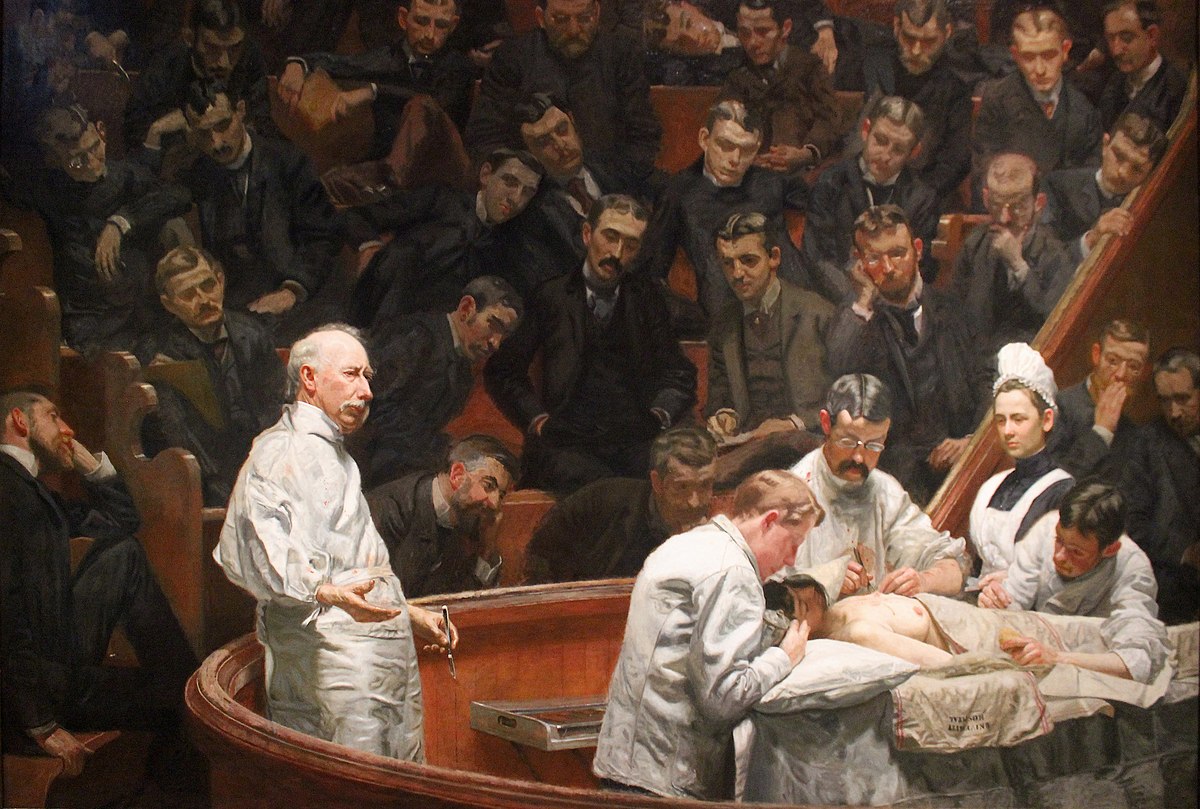Abducted
it
was night when they abducted me
I didn't see their faces
they tied my eyes
put me on the operating table
separated my soul from my body
I didn't see their faces
they tied my eyes
put me on the operating table
separated my soul from my body
all
the blood ran out
they said were going to throw it
in the Red Sea
not to leave any trace
they said were going to throw it
in the Red Sea
not to leave any trace
then
they buried my soul
in some cemetery
in some cemetery
my
pale body now attracts many men
I hear from the conversations dogs and birds
who are fed at the cemetery have
I hear from the conversations dogs and birds
who are fed at the cemetery have
sometimes
I hear your steps as well
your voice
you pass along an unmarked grave
just say you're too far away
and continue walking
your voice
you pass along an unmarked grave
just say you're too far away
and continue walking

The Agnew Clinic -- Thomas Eakins
David Hayes Agnew was a 19th-century American surgeon. In 1863 he became the demonstrator of anatomy and assistant lecturer on clinical surgery at The University of Pennsylvania in Philadelphia and wrote the 3-volume "The Principles and Practice of Surgery" (1878-1883). To mark his retirement in 1889, 3 undergraduate classes at the university commissioned Eakins (who had been the director of the Pennsylvania Academy of Fine Arts until his forced resignation for daring to remove the loincloth of a male model in a class where female students were present) to paint "The Agnew Clinic." Eakins (or possibly his wife Susan) painted him into the picture as the rightmost of the pair behind the nurse. The Eakinses had met in 1876, when his earlier controversial painting, "The Gross Clinic," was on display at the Hazeltine Gallery; she became his student, and they married in 1884, a year before he left the academy. As an instructor who had studied medicine as a young man, Eakins gave his students plaster casts made from dissections.
ReplyDelete